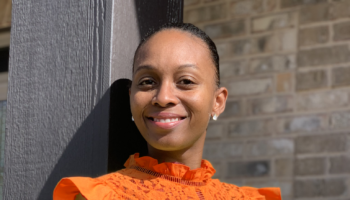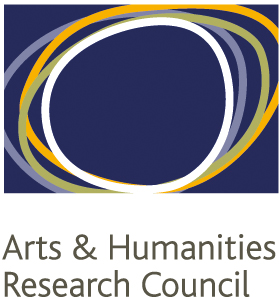Tell us about yourself. Who are you and what do you do?
My name is Richard Newton, PhD. I am Assistant Professor of Religious Studies at the University of Alabama. My research investigates the connections between humans making difference and making a difference in the world. I am fascinated by how the identities that people assume are actually the dynamic struggling through which people work out their aspirations in relationship to their context. These processes, for me, give shape to the discourses we call race, ethnicity, gender, ability, sexuality, etc. And given our inklings about how these social markers work, their impact and volatility continue to mystify. In this regard, my scholarship has tried to develop a vocabulary and grammar to parse these politics. I call this work the “anthropology of scriptures,” the study of the cultural texts that form and inform our relationships. It’s an enterprise that brings front and center the issues that are hard to talk about, too important to ignore.
As I think about my work from graduate school onward, I suppose my scholarly identity is most aptly expressed around cultivation and curation. A few years ago, I turned my personal blog into a collaborative multi-media magazine called Sowing the Seed: Fruitful Conversation in Religion, Culture, and Teaching. The idea was to work with students and scholars at different stages and across the disciplines to think about how we produce knowledge that helps us better understand social difference. Undergraduates have published pieces alongside senior scholars. Students have created websites and mini-documentaries. And our podcasts have featured a range of provocative thought-leaders. In four years we’ve partnered with people at over 20 institutions of higher education, not counting our conversation partners on social media. We know that their contributions have been a resource for high school classes, college courses, religious communities, and activists. But the real shock is that our readers are taking our work outside of their own echo chambers and discussing them with the friends and family with whom they scarcely talk about these issues. Our small internet community isn’t viral, but it is vibrant.
And I count myself fortunate that so many of the team at The Shiloh Project have read or even contributed to our project. The Shiloh Project’s recognition of the Bible’s legacy in gender-based and sexual violence has given me so much to consider. And the work continues.
How do you think the Shiloh Project’s work on religion and rape culture can add to and enrich discussion and action on the topic of gender activism today? Is there more we can do? What else should we post?
The Shiloh Project has also been brilliant in using an online and conference model to reframe the conversation in generative ways. For instance, many historians of the Shiloh Project have done a noteworthy job in countering the myth that rape, sexual assault, and gender-based violence are new. Rather, we are learning to pay attention in ways and in spaces and to people that have otherwise been ignored.
Today’s technology does offer us a different type of challenge—and opportunity—that I think digital projects like Sowing the Seed and the Shiloh Project must face. How do we engage in meaningful conversations when people have so many choices for online media? So while the #MeToo movement demonstrates the timeliness of our cause, we must find ways to be more responsive to the needs and the questions of the people who want to engage with us. Does it mean Twitter chats, Facebook Live discussion, or an Instagram feed of convicting content? I really don’t know. But I think it’s time for us to reflect on how we can best marshal our energies.
In the year ahead, how will you contribute to advancing the aims and goals of The Shiloh Project?
I am really hoping to find ways to more formally work with entities at The Shiloh Project and the Sheffield Interdisciplinary Institute for Biblical Studies. There are a few talks I’m hoping to deliver and some articles for which I’d like to find a home. I think there are many ways that social theory and the anthropology of scriptures can help us consider gender violence in relation to the Bible and Bible readers. So I look forward to affirming some of the connections facilitated by the Shiloh Project and its international network.







